“I’m getting to know Mark,” he says today.
“I don’t really think I’ve been Mark for 46 years … once I started ‘using’, I gradually morphed into something that wasn’t me, which is a pretty dramatic thing to say, but it’s pretty true.”
After finally facing his demons – gambling, alcohol and drug addictions – and being clean for almost five months, Aiston recently celebrated his 61st birthday.
Was it the best one he’s ever had?
“Well, it was the soberest,” he quips. “I’d been gambling, using marijuana and drinking … extremely heavily on and off since I was 14.”
Addictive behaviours and mental health conditions go hand-in-hand. Aiston wants to destigmatise both by sharing his story and helping others.
Three years after his mainstream media career ended abruptly, he has a podcast, The Mental Health Show, and regularly video blogs with his 5000 followers on Facebook.
He was also hired by commercial builders Hansen Yunken to talk to construction industry workers during R U OK? Week.
AISTON INTERVIEW: PETER SMITH’S BATTLE WITH PARKINSON’S
Aiston has previously spoken about his breakdowns and battle with depression, which began as a six-year-old. Rejected by his first crush, he was unable to go to school and did not get out of bed for two days.
His sister Kathy Aiston, who was the assistant to his magician when they would stage their own Royal Adelaide Show for the neighbourhood kids, says he suffered from anxiety as a child.
“As kids we were really, really close,” she says.
“I recognised it early but nothing was ever done about it.”
Kathy believes her brother has “addictive genes”.
While he was introduced to cannabis by school friends, Mark Aiston recalls that what were to become his other vices were already perfectly acceptable in his family’s household. His father Keith, who ran a city gym, was a gambler and a drinker.
“I can remember one day just asking dad ‘Can I have a bet?’ and he said, ‘Yeah, what do you want to do?’ and I said ‘50 cents each way’.
Both horses won and I won about $6 and that was when I was 14 and, of course, I became hooked straight away,” Aiston says.
“I was in the environment where there was no accountability. Dad wouldn’t have said, ‘No, you are not having a bet, son’. He was welcoming it.”
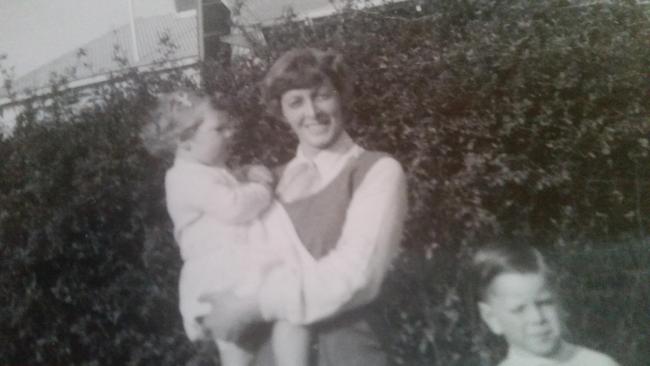
Aiston’s mother Ruth would mix her valium with alcohol. “Mum was very unwell – she was in and out of Glenside [Hospital] – so we had a very unusual upbringing; a lot of families do,” Aiston says.
At 15, Aiston began working at this father’s gym in Hindley St, where he mixed with “criminals, pimps, prostitutes, bikies, skinheads, conmen … the whole gamut”.
“I fitted in well because I was a good communicator and I befriended a lot of them,” he says. “I used to go to two-up games on a Friday night out the back of the pizza bar in Rundle St. It was exciting. There would be 15 or 20 of the top crims in Adelaide … there would be smoke going everywhere and they would be tossing the coins.”
Then there was the races, where he was a regular long before his 18th birthday.
“I loved it, I lived for it … I loved having a bet … I loved getting drunk and loved getting stoned,” he says. “I just loved it and I loved it for 10 years.”
Aiston now sees his life was already off track.
“I was losing on the punt, my memory was starting to deteriorate because of the alcohol and marijuana, and that was affecting my job,” Aiston, who by that time had started working as a race-caller at 5DN, says.
By then in his mid-20s, it would be another 36 years before he hit rock bottom earlier this year.
In 1983 he moved to Darwin and stayed for two years, before returning to Adelaide.
Here he embarked on a successful high-profile media career with the ABC and Network Ten – where his role included being national sports “comedy reporter” – and in commercial radio at Triple M, Mix 102.3 and FIVEaa.
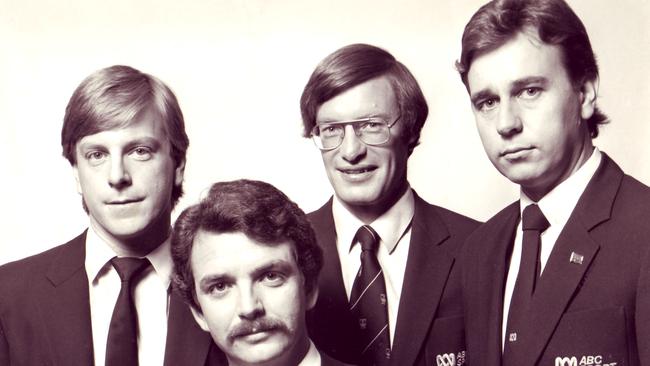
But the show was suddenly over in 2016.
Aiston was unemployed after losing his job at FIVEaa, and his 28-year marriage to Judith, with whom he has a daughter, Bridget, had broken down.
He coped by adding cocaine to the mix, and by 2018 his life was beginning to spiral out of control. At his lowest he was driving under the influence of alcohol and drugs, and on suicide watch.
“Others have been through worse, because others kill themselves,” Aiston says. “Thank God, I didn’t … I thought about it many a time, but I didn’t get to that point.”
In April, Kathy and Aiston’s best friend of 40 years, Brad Jones, intervened, meeting with him to discuss their concerns.
“Mark’s always been an easy person to read, but in the last 12 months he was really difficult to read,” Jones says.
Both he and Kathy had become increasingly concerned by Aiston’s erratic behaviour and dramatic mood swings.
He was running out of money and obviously not taking care of himself, going out in public in unironed clothes, which was out of character.
“Mark was putting up a really good front, but at the end there was no front at all because he was just worn out,” Kathy says.
LEARN MORE ABOUT MENTAL HEALTH
■ Sturt captain Zane Kirkwood talks about his mental health issues
■ Former Glenelg star Stringer calls on mates to ask R U OK?
Aiston agrees, saying he was no longer in denial “at all”.
“I was in a pretty dark hole. What I told them was pretty horrifying,” Aiston says of the intervention dinner at a Glenelg restaurant.
“I painted a picture of how I’d been living my life for the last seven to eight months as things were getting worse and worse. They were really concerned and upset, not annoyed or mad, but just really concerned for my safety.”
While Jones says Aiston had been “sending up flares”, Kathy was shocked to discover he had been on suicide watch.
“It’s so scary to know that somebody’s there and could just be gone,” Kathy says.
With Aiston already seeing a psychiatrist and taking medication, they suggested he go to rehab.
“I agreed straight away. There was a lot of crying – no pointing the finger,” Aiston says. “That night I went straight home and just googled a few places and sent emails.”
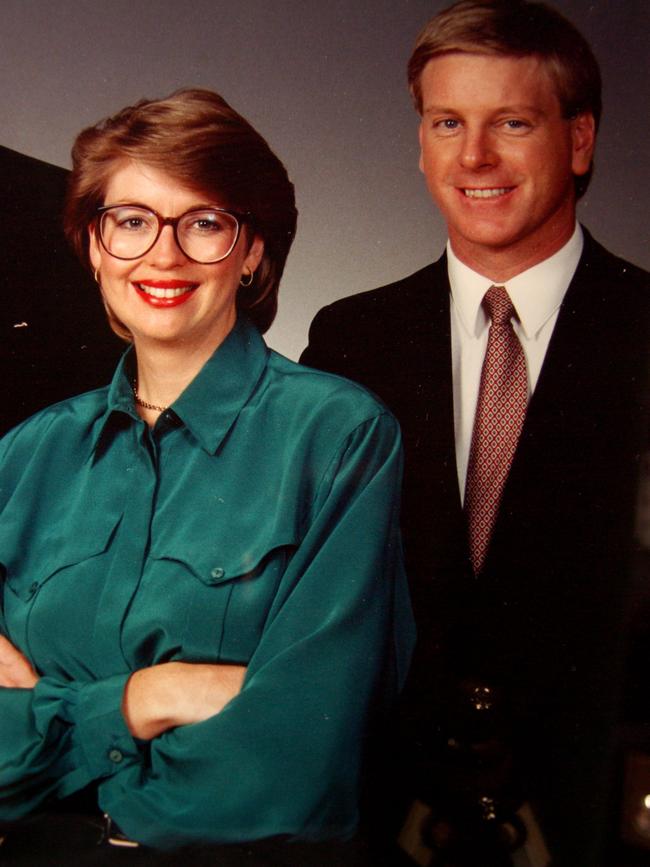
Next morning Aiston was walking Jack, his kelpie rescue dog, who has been his constant companion for the past four years.
“He’s the love of my life,” Aiston says. “He saved my life. He’s on the list (of those who’ve saved me) and there’s only five on the list.”
With Jones, Kathy and brother Robbie Aiston, also on “the list”, he took a call from the man who was to become the fifth, Jackson Oppy, general manager of The Hader Clinic, one of Melbourne’s largest rehabilitation facilities, which also has a Bali branch.
“We spoke for an hour – I probably cried for 80 per cent of it. He asked really hard questions and within 24 hours I was in Melbourne in his car,” Aiston says.
“My life changed at that moment. It doesn’t for everyone and there are no guarantees … you can’t ever say that, but his generosity, love, genuine care and commitment to help me as much as he possibly could was unbelievable.”
Oppy recalls Aiston “didn’t appear to have much hope in his life” as he drove him to Geelong, where he would detox and receive treatment for his addictions under the supervision of clinical and medical staff 24/7.
“When I met Mark he was a highly anxious, fearful, upset man,” Oppy says. “He was full of regret and shame … he felt hopeless.”
Despite this, Aiston recalls enjoying the car trip, the two talking all the way.
“I can remember vividly walking into The Hader Clinic. I wasn’t really frightened, I was quite excited,” he says.
Checked for drugs, Aiston was required to surrender his phone and laptop to prevent him from contacting his dealer and exposure to triggers.
Fortunately, going cold turkey, taking valium for the first three days to minimise potential physical and psychological side effects, wasn’t a problem for Aiston.
“I don’t remember a thing,” he says, of those first 72 hours. But after that things became difficult.
“It wasn’t concentration camp stuff, but it was very restrictive,” he says. “You weren’t allowed to leave. If you left it had to be for a genuine reason with a worker.
“They didn’t treat me like a TV personality. They didn’t treat me like someone who everyone knows here in Adelaide. They treated me exactly how they treated everyone else in there and that was with tough love, really tough love, and it was very confronting.
“Not because I was sitting around saying to myself, ‘Oh God, I’ve got to have a drink or a bet or a line of coke’, but all of a sudden what had happened in my life struck me. There was a lot of shame – losing a marriage, my jobs at Channel 10 and Nova Entertainment – and you started mulling over that. The amount of people you’ve hurt and people you’ve let down.”
Aiston is referring to his shock exit from Ten, which he now admits wasn’t his decision as previously reported.
Inebriated at the 2014 SA Media Awards, he made an inappropriate comment to a colleague. While Aiston says they weren’t offended, a third party overheard, reported him to upper management and he was sacked.
“They’ve got to act on that,” Aiston says.
He believes his departure from Nova Entertainment, when he was axed from his weekend brekkie radio gig at FIVEaa three years ago, was due, in part, to his poor performance and “not toeing the line”.
But, with a lot of time to think during his rehabilitation, Aiston says he felt he had been living a double life and that his television and radio persona was a mask.
“Everyone loved me – not everyone, that’s very egotistical to say that – a lot of people loved me,” he laughs, before adding: “A lot of people liked what I did and found me funny … but I felt like a fraud because I was putting this act on all the way through all of my addiction and mental health issues so I didn’t really feel as though I was being honest to the listeners and viewers.
“Those types of jobs need someone to be totally focused. I still did a really good job … but imagine how much better I could have done. I was always in doubt and every time I got off-air I was always upset that I had made a mistake.
“Every time I called football I would be so annoyed with myself that I had made one small mistake. Could I have called footy better? No doubt. And I could have done that if I was clean and sober, but the addiction was so powerful that you don’t think that way. But I never, ever used when I was working.”
Aiston’s fellow addicts at The Hader Clinic came from all walks of life, but he could talk to any of them, and fitted in.
“But it was still confronting because all of a sudden you’re one of them,” he says.
“I always was one of them, but now I was officially one of them and so, again, that just brings back different feelings and imagery in your head.”
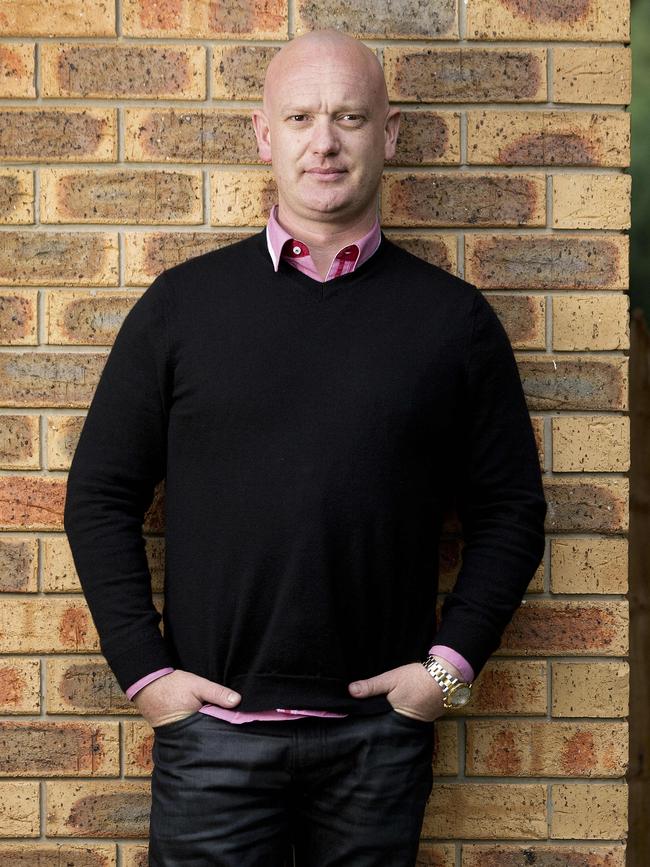
Attending Alcoholics Anonymous and Narcotics Anonymous meetings daily, Aiston struggled with expressing his feelings in morning group therapy meetings.
“When you’ve been using for a long time your ability to be emotional from the heart and to genuinely let it out is negated … you’ve been using for so long to suppress,” he says.
“The moment you stop it doesn’t necessarily mean all of a sudden all these emotions are going to come out, particularly in a forum situation.
“I was personally picked out and spoken to about that. I wasn’t opening up and that’s not good for me or anyone else because what you’re doing is still putting on the mask.”
After a month, Aiston was ready for The Hader Clinic’s less restrictive program at Essendon.
“In a lot of ways it was even tougher because the two guys who ran the program there weren’t into pity parties or excuses – they were really hard arses,” he says.
AA, NA and group meetings were still compulsory, but there were also excursions for activities such as go-karting and free time.
“It’s a lot less strict,” he says.
“When you have an hour to spare, you can go into town if you want … you can do whatever you want. That obviously means that the trust has to be there and we lost a few people.
“I was extremely determined that I wasn’t going to f..k this up and there were a few times that I went off by myself. I went down the road and had a coffee. It was great freedom … I’m a bit of a loner.”
Asked if those solo outings gave him the opportunity to just be Mark and not Mark the addict, Aiston agrees, but then checks himself. “Yes, correct, [but] I was morphing back into whatever Mark is,” he says.
While Aiston was committed during his rehab stunt, he was also triggered during one of his coffee breaks.
He had stopped to pat a dog, chatting with its owner and expressing concern that her pet wasn’t on a leash.
She reassured him it was fine because they only lived a few doors away.
“As I said goodbye the dog turned around and went out [onto the road] and got knocked over,” he says.
“My lasting image is of the girl, who got out of the car, and the owner holding the dog. The girl said, ‘I will take you to the vet’ and the dog was crying … as soon as that happened I just went into a tailspin. It was a trigger. Walking past a pub or a TAB – I had no trouble with that, but that was a significant trigger. I felt like using … two or three quick glasses of scotch … a line of coke.”
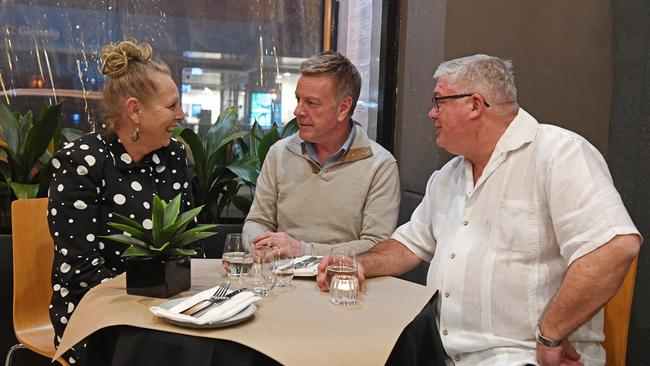
Aiston didn’t and kept the traumatic event to himself.
“I made the mistake of not saying anything about it – I got through it – and the next morning we had our 9am meeting,” he says.
It was then that he shared what had happened and was “really lambasted” for not reaching out immediately.
“At the time I was very emotional and very upset, but I understood afterwards it was coming from love and care, and coming from, ‘Hey, this is what it’s about – it’s not about holding onto these things’,” Aiston says. “I certainly wanted to get home, but I wanted to get well.”
He was also missing his own dog. “Jack was forefront in my mind. I love him so much and I wanted to come home,” he says.
After two months, he felt ready to return to his life in Adelaide and spoke to Oppy who agreed.
“That night we went to an NA meeting and I was asked to share (my experience),” he says. “I got up thinking, ‘What am I going to talk about?’ and thought, ‘Just f..king talk about what you are going to do’.
“I spoke about (going home) and completely lost it … particularly when I started talking about how much I was missing Jack, and I just shared for 10 minutes.”
It was an “unbelievable” release.
“It was probably the first time that I had actually allowed myself to get really emotional in front of people and let it out and not care about how I looked or what I was saying,” Aiston says.
“The next morning I left, was home by two o’clock in the afternoon and went straight to Kathy’s – she had organised my room – and I’ve been there ever since.”
His room at Kathy’s home is a humble existence compared to the heady days when he was on big money, but material things no longer matter.
Asked if he’s hard on himself, Aiston answers “100 per cent”. He regrets the way his former wife Judith suffered in their marriage.
“I was selfish and lying, because you get very deceitful when you’re gambling and using. I wasn’t using cocaine when I was with her, but I was doing everything else,” he says.
“I feel very privileged and blessed that I was able to have such a good job and marry such a lovely person and have a beautiful daughter … but I still feel very guilty about being a fraud and eventually losing all of that. But I don’t feel bad that I’m not earning that money or that I don’t have a big house.”
While his five months of sobriety have passed quickly, Aiston realises he still has a long way to go.
Last week he slipped, placing a bet at the TAB but says he’s now back in control. “I had a relapse with gambling,” he admits. “Do I intend to do it again? Absolutely not.”
Aiston recognises he’s not out of the woods.
“My gut feeling is that I will never use again. I am 61 years of age. If I can’t not use for another 20 years I would be disappointed.”
But, he says, “it’s a day-by-day thing”.
Oppy says he sees a dramatic change in Aiston, who’s “not in constant fear anymore”.
“You look at him today and he’s full of hope, ambition and a desire to live,” he says.
“He had issues that needed to be dealt with and managed. He understands that now and it’s given him relief and hope. It’s also given him a platform to live the rest of his life in a meaningful, honest, productive, fulfilling way.”
Jones agrees, saying Aiston is no longer “out-of-control Mark” but his old friend. “To Mark’s credit he took that step – nobody else could,” Jones says.
Kathy says her brother is no longer wearing a “happy face” for show and has become more serious after “using humour to deflect” for so many years – a trait they both believe was inherited from their father.
“We’ve got an addiction to comedy,” she says. “Media is such a performance and I remember when he used to come to dinner he was ‘Channel 10 Mark Aiston’.
“None of us are perfect and we don’t expect him to be perfect. I’ve always loved him and always thought he was an extraordinary person … the only person who didn’t know that was him.”
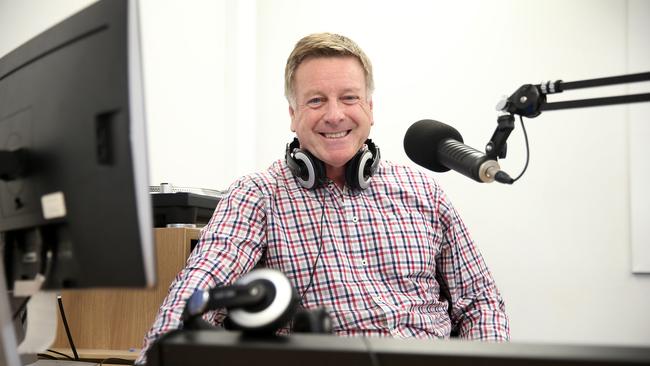
Aiston wants other addicts to know that getting clean has been worth it.
“I’m just feeling as though it’s getting better every day and decisions that I’m making are for a genuine reason because I’ve thought about them,” he says. “I’m still making bad ones, but I’m not making bad decisions like, ‘I’ve just had a line of coke and I’m pissed, and I think I’ll drive around to a restaurant’, which was what I was doing.
“For f..k’s sake, I got done for DUI 20 years ago. I’m just so lucky I didn’t kill anyone … When you’re clean and sober you tend to be a lot calmer. You’re less reactive and more confident within yourself … It’s a good freedom to have.”
One of the decisions Aiston’s feeling especially positive about is signing on as The Hader Clinic’s liaison person in Adelaide, a position Oppy created for him.
Why Aiston?
“He’s passionate and he hasn’t taken any shortcuts in his journey … and it’s quite common for people who have suffered addiction and come out the other side to work in this field,” Oppy says, adding Aiston has “a strong message”.
“Mark’s an example of what can be achieved in a relatively short period of time. The patient coming in doesn’t want to know about 20 years later, they want to know about how I can feel in two, three, six months because they are in a tremendous amount of pain now.”
Aiston is looking forward to the job.
But he is also keen to point out he isn’t sharing his story to generate business for the clinic or seek sympathy. He simply doesn’t want others to suffer alone.
“I don’t want people to have to get to the point where you’re in a state of horror when you get up in the morning as a result of what happened the night before, day after day,” he says. “I just want people to understand that there is hope.”
While it may seem Aiston’s burned bridges, Jones is confident that, given the chance, he could rebuild his career in the mainstream media.
“Everything Mark has achieved is sheer talent and you never lose that talent – it gets shoved around and doesn’t always come out to its best – but he’s more than capable of using that talent at the highest level again if somebody would give him a chance, so I hope that happens,” he says.
Aiston agrees a comeback’s a distinct possibility.
“I’m in a good position to rebound. I can now start to do things that are meaningful to me and they will involve TV and radio in a different way,” he says.
Such projects include talking about men’s health and his struggles with addiction in both voluntary and paid roles such as the R U OK? talks.
“I walk away feeling really, genuinely good,” Aiston says. “I don’t feel as though I’m being false anymore. I’m telling it as it is.”

Add your comment to this story
To join the conversation, please log in. Don't have an account? Register
Join the conversation, you are commenting as Logout